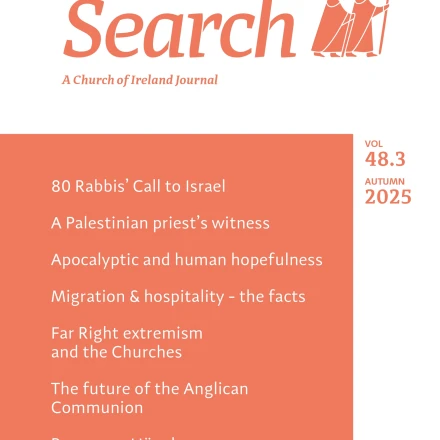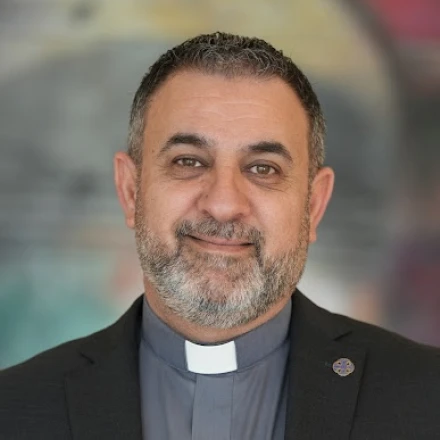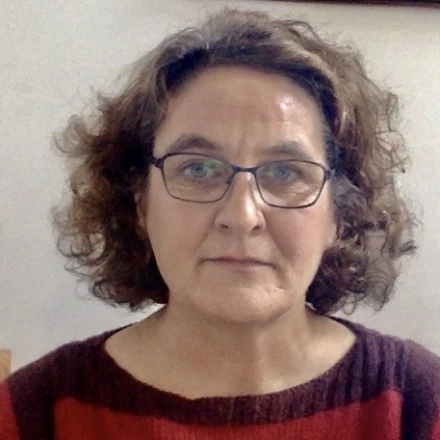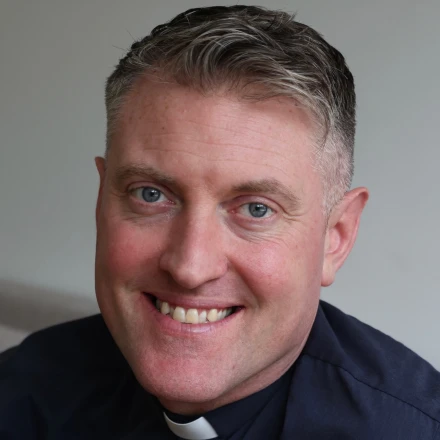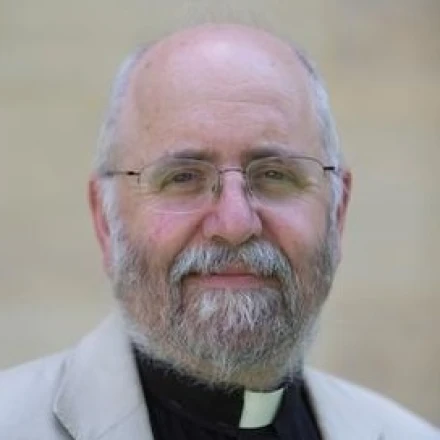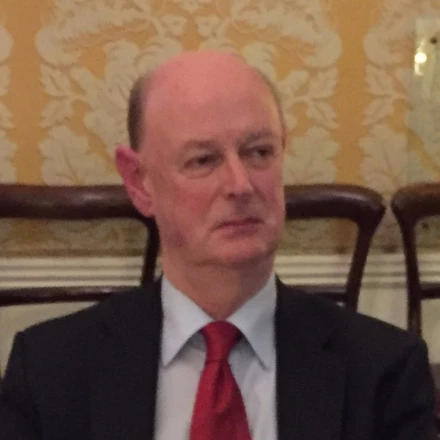Autumn 2025
Editorial
IT WOULD be impossible to ignore the situation in the Middle East, and particularly in Gaza, as we approach the second anniversary of the HAMAS attack on Israeli civilians and what is now widely regarded as Israel’s genocidal response. The deep trauma of the Holocaust is still so overwhelming that accusations of “antisemitism” are routinely levelled at anyone who deplores Netanyahu’s disproportionate response. Yet Jewish opinion is not overwhelmingly supportive. This is shown by the statement of 80 Orthodox rabbis issued in mid-August, reproduced overleaf. It calls the Israeli government to observe the values of justice, mercy and righteousness celebrated in the Hebrew Scriptures. There will be further contributions from Jewish writers in our next issue.
Meanwhile, we welcome a distinguished contributor from the Palestinian Christian community, Revd Dr. Fadi Diab, a prominent churchman in the Diocese of Jerusalem and the Middle East with links to Dublin and Glendalough diocese. His description of the situation of Palestinian Christians, both now and over the past 80 years, is eloquent, accurate and distressing. It challenges us to Christian solidarity.
But anxiety over world affairs in relation to Christian witness stretches well beyond Israel, as other autumn titles show. The despair felt by many is addressed by Revd Chris MacBruithin in his exploration of the biblical value of hope with reference to the philosophy of Ricoeur and the thinking of Jürgen Moltmann. A new angle on migration issues in relation to the call to hospitality is explored by Dr. Cathriona Russell. And Revd Philip McKinley draws our attention to the excesses of Far Right agitators and politicians and the challenge they offer us as Christians.
Looking to the uncertain future of the Anglican Communion, Revd Dr Mark Chapman analyses the recent Nairobi-Cairo Proposals of IASCUFO and the looser communion structures these may lead to when the next Archbishop of Canterbury is appointed. Then, before we reach the Book Reviews, Dr Andrew Pierce offers us a portrait of Baron Friedrich von Hügel, whose anniversary occurred this year, and Revd Timothy Kinahan reflects on our understanding of the glory of God.
Please note that while we have to increase our price from 2026 we are also offering a cheaper digital version. Please make the arrangements that best suit you without delay, and consult our new treasurer, Clark Brydon, if in doubt.
